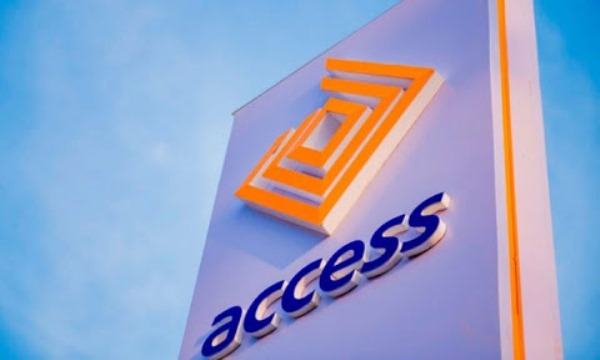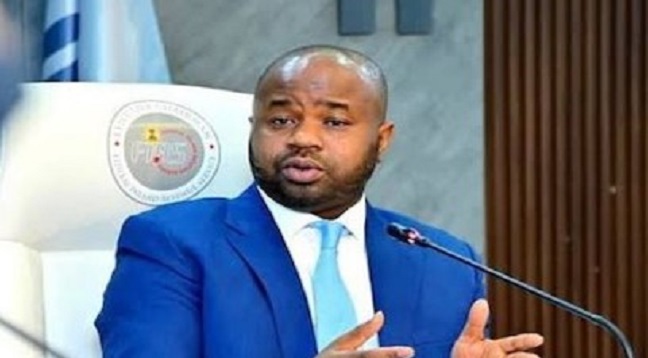E-Financial
Access Bank Assures Shareholders of Higher Dividend Payment

Access Bank Plc has assured shareholders of sustained dividend payout and improved performance in the years ahead. Mr Herbert Wigwe, Chief Executive Officer of the bank, gave the assurance while addressing shareholders at the 2020 Annual General Meeting (AGM), on Friday, in Lagos.

Wigwe said that the bank was well positioned to achieve significant growth in profitability and pay higher dividend given its position in the banking industry today.
He said that Access Bank had a healthy capital adequacy ratio, a robust balance sheet and strong brand that would lead to a better performance in the years ahead.
Wigwe noted that the bank recorded a profit after tax of N106 billion in 2020, an increase of 13 per cent from N94 billion achieved in the corresponding period of 2019.
According to him, the bank recommended a final dividend of 55k per share for the year ended Dec. 31, 2020, bringing the total dividend to 80k having paid an interim dividend of 25k earlier.
Wigwe said shareholders should expect better dividend that would be sustained given the various strategies put in place to grow the business.
According to him, Access Bank is best positioned to maximise the identified opportunities in Africa on the back of a growing customer base and the move to a cashless economy.
“We have identified Africa to be a vast pool of opportunities with over 370 million unbanked adults.
“With $9.2 billion in remittances and cross border payments, 89 cities of over 1.3 billion inhabitants by 2025 and the overall African financial ecosystem.
“We also see opportunities coming from the new African Continental Free Trade Area, as it is expected to expand intra-Africa trade to 53 per cent by 2022.
“Also eliminate tariff on qualifying trade and increase financial flows,” he said.
Wigwe said that on the domestic front, Nigeria presents several opportunities due to its large population, huge payments and remittance flows, and emerging insurance market.
“To capture these opportunities, Access Bank will transition into a holding company structure.
“The structure will enable it tap into the market opportunities that are available in the regulated banking and consumer lending market, electronic payments industry and retail insurance market.
“Through the restructuring, we will create new product revenues without taking incremental risks for the enterprise, ensure diversification of earnings, and support outside of Africa,” he said.
He added they had commenced green field operations in Mozambique and completed acquisition of Transnational Bank and Cavmont Bank in Kenya and Zambia, respectively to strengthen and increase their market presence.
“Early 2021, we received regulatory approval for our proposed acquisition of Grobank in South Africa to give us inroad into largest economic block in Africa and one of Africa’s biggest markets.
“Our acquisition of Grobank will help strengthen our foothold in Southern African market, Africa’s largest economic hub and place us in a strong position to take advantage of Africa,” Wigwe said.
In her address, Chairman of the bank, Dr Ajoritsedere Awosika, said in 2020, the bank made several investments to strengthen relationships with its customers.
“By redefining our approach to customer service through streamlining our internal processes, and digitising about 30 per cent of customer journeys, we were able to improve on our customer experience.
“Also, we were able to manage our expenses in line with the target for 2020 despite double digit inflation and overall cost of running the enlarged enterprise.
“As a result, we achieved a Cost-to-Income Ratio of 63.4 per cent from 66.1 per cent in 2019.
“We worked hard to recover and dispose of a significant portion of our non-performing assets.
“With a decline in the portfolio of overdue loans, our asset quality improved across our retail and wholesale segments.
“Our capital and liquidity ratios were also well above regulatory limits with our capital adequacy ratio remaining strong at 20.6 per cent,” Awosika said.
Shareholders at the AGM commended the board and management for efficient service delivery.
Mr Eric Akinduro of Ibadan Zone Shareholders Association, commended the bank for sailing through the COVID-19 pandemic by ensuring improved results that led to the declaration of 80k dividend.
Akinduro said the various acquisitions by Access Bank across Africa, showed that the institution was very strong and assured of shareholders continuous support.
Mr Sunny Nwosu of Independent Shareholders Association of Nigeria said given the expansion drive, the bank was really aiming to play a leading role on the African continent.
According to him, it is a good development that will lead to better returns for shareholders and other stakeholders going forward.
E-Financial
Rashidat Adebisi Unveils Strategic Roadmap for Nigeria’s Insurance Sector under NIIRA 2025

Following a landmark 21-year career in institutional finance, Rashidat Adebisi, the former Executive Director at AXA Mansard, has officially launched “The Re-Architecture Project.”

This strategic pivot aims to align Nigeria’s insurance and financial infrastructure with the federal government’s ambitious $1 trillion economy goal, positioning the sector as a critical driver of macro-economic stability.
As Nigeria navigates the complexities of the Nigeria Insurance Industry Reform Act (NIIRA 2025), Adebisi identifies this moment as a “watershed” for the industry.
She argues that the path to a trillion-dollar economy requires more than just capital, it demands a total re-architecture of how financial systems interact with the informal economy, which currently accounts for over 60% of employment in Africa.
Macro-Economic Resilience as a National Imperative
The Re-Architecture Project reframes insurance from a transactional product into the “secret sauce” of a resilient economy.
Adebisi asserts that for Nigeria to achieve its macro-economic targets, the insurance industry must bridge the massive “protection gap,” as penetration currently remains below 3% across many African markets.
Insurance as an Economic Safety Net: “Insurance is the net that allows a nation to jump higher,” Adebisi stated.
She emphasizes that every decimal point in a financial model represents a business stabilized and a future secured, providing the essential foundation for macro-economic growth.
Infrastructure Beyond Capital: The project posits that Nigeria is not lacking capital but “invisible infrastructure”, specifically Trust, Access, and Regulatory Clarity.
NIIRA 2025: From Compliance to Competitive Advantage
Adebisi describes NIIRA 2025 as a vital structural reinforcement rather than regulatory friction. The Act’s focus on Capital Recalibration, Stronger Governance, and Consumer Protection is essential for building the institutional rigour required to support a $1 trillion GDP.
Recalibrating Foundations: The reform represents a necessary recalibration of the industry’s foundations while accelerating digital transformation.
Strategic Policy Fluency: “Those who view compliance as a burden will struggle; those who see it as a competitive advantage will thrive,” Adebisi noted, identifying policy fluency as a core leadership competency for the next decade.
Economic Visibility: Integrating the Informal Sector
A central pillar of the project is “Engineering Inclusive Ecosystems,” exemplified by the FileAm App. This initiative reimagines tax compliance as a digital utility for SMEs and informal entrepreneurs, moving them from economic invisibility into formal digital tax rails, insurance coverage, and credit ecosystems.
The Wealth Pipeline: By building digital identity and verifiable credentials, the project aims to turn compliance into credit history, and credit history into the capital access required for intergenerational wealth creation.
As a Financial Systems Architect, Adebisi’s blueprint for the next decade is governed by a singular core rule: Data-aware. Policy-conscious. Africa-focused.. The project calls on industry leaders and policymakers to move beyond incremental adoption toward designing interoperable ecosystems that can sustain the Africa of tomorrow.
“The future of finance in Africa will not be inherited. It will be architected,” Adebisi concluded. “It is our turn to build.”.
E-Financial
NAICOM Targets Resilient, Global Competition Market in Insurance Sector Consolidation

The National Insurance Commission (NAICOM) has unveiled a far-reaching reform agenda aimed at strengthening industry stability, improving consumer confidence, and positioning the sector to play more strategic role in national economic growth.

Speaking at the 2026 management retreat in Uyo, Olusegun Ayo Omosehin, commissioner for Insurance/CEO, NAICOM, described the initiative as a defining moment for the industry, stressing that the transformation drive is designed to modernise regulatory oversight, deepen market penetration, and build a more resilient and globally competitive insurance industry.
The renewed policy direction was unveiled at the Commission’s 2026 Management Retreat held in Uyo, Akwa Ibom State, under the theme “Insurance Regulation: Reset, Reimagine, Refocus.”
Omosehin, described the retreat as a watershed moment in the Commission’s 29-year evolution, declaring that the regulator is embarking on a decisive transformation phase anchored on integrity, professionalism, accountability, and institutional unity.
He stressed that the reform agenda represents a deliberate shift away from outdated regulatory practices towards a modern, proactive, and impact-driven supervisory framework capable of strengthening market confidence and driving sustainable industry growth.
Omosehin explained that the retreat’s theme reflects a strategic call to action designed to reset legacy regulatory approaches, reimagine the untapped potential of Nigeria’s insurance market, and refocus regulatory strategies to deliver measurable economic value.
He further underscored the Commission’s strategic role in supporting the economic expansion blueprint of president Bola Ahmed Tinubu, noting that achieving Nigeria’s ambitious $1 trillion economic target requires a resilient, well-capitalized, and shock-resistant insurance sector capable of underwriting major risks, attracting investment inflows, and supporting long-term national development.
Central to the reform drive is NAICOM’s ongoing recapitalization programme, which the commissioner described as one of the most far-reaching regulatory interventions in the history of Nigeria’s insurance industry.
He clarified that the initiative goes far beyond capital injection, stressing that it is designed to strengthen insurers’ financial stability, enhance consumer protection, deepen insurance penetration across underserved segments, reinforce the industry’s capacity to withstand economic shocks, and rebuild public trust in insurance as a credible financial safety net.
He emphasized that the credibility of the exercise will be measured by its transparency, fairness, and professional execution, warning that the Commission will tolerate no ambiguity, compromise, or preferential treatment in the process.
Addressing management staff, Omosehin delivered a firm directive for internal discipline and cohesion, urging leaders within the Commission to uphold integrity as a guiding principle, professionalism as an operational compass, and transparency as a non-negotiable regulatory standard.
He stressed that NAICOM’s effectiveness depends on institutional collaboration, warning that departmental silos and bureaucratic rivalries undermine regulatory efficiency.
In a symbolic demonstration of commitment, management staff collectively pledged to uphold fairness, accountability, and global best practices in executing the recapitalization roadmap and safeguarding the future of the insurance sector.
The Commissioner also outlined key strategic priorities expected to reposition the industry, including strengthening regulatory oversight, ensuring disciplined execution of the recapitalization framework, deepening stakeholder engagement, expanding institutional capacity in risk-based supervision and data analytics, driving market development through digital innovation, strengthening organizational culture, and reinforcing policyholder protection mechanisms.
Omosehin also invoked an African proverb to emphasize the importance of unity and collective resolve, noting that sustainable transformation of the insurance sector can only be achieved through shared commitment among regulators, operators, and stakeholders.
He reaffirmed NAICOM’s determination to build an insurance industry that is resilient, globally competitive, trusted by policyholders, and fully aligned with Nigeria’s long-term economic transformation agenda.
E-Financial
Adedeji, NRS Boss says Technology is Crucial to Tax Reform’s Success

Zacch Adedeji, the Executive Chairman of the Nigerian Revenue Service (NRS), has described technology as a crucial factor in the implementation of the new tax laws.

Adedeji stated this while delivering the maiden convocation lecture of the Federal Polytechnic, Ayede, Oyo state.
In a statement by his Technical Assistant on Print Media, Sikiru Akinola, Adedeji listed some of the most fundamental challenges confronting taxation to include infrastructure, skills, trust and resistance.
In the lecture titled, ‘The Role of Technology in Implementing Nigeria’s New Tax Laws: Challenges, Prospects, and Implications for National Development,’ the NRS chairman said each of the challenges would be addressed with the imminent upgrading of the country’s tax system for a digital environment.
He said: “Nigeria has recently enacted a new set of tax laws, representing the most significant restructuring of our nation’s fiscal legislation in 50 years. While public conversation often frames these changes as legal reforms, and that is true, it is also an incomplete picture.
“These laws are not merely changing rates, definitions, or administrative powers. They are quietly redefining how authority operates within the tax system. This is a complete structural overhaul, signalling the end of tax collection as a manual task and the beginning of tax intelligence.
“If you read the new laws carefully, you will notice a subtle but profound assumption woven throughout their fabric. They presuppose the existence of reliable taxpayer identification, integrated data across institutions, traceable transactions, automated processes, and scalable enforcement.
“In other words, these laws are built for a digital environment. They cannot function properly in a manual, fragmented, paper-based system. The implication is clear: without technology, the laws remain aspirational. With technology, they become operational.
“This transition is central to the mandate of the Nigeria Revenue Service as we implement this new legal framework. Historically, tax administration relied heavily on human discretion over who is registered, who is assessed, who is audited and who is penalised.”
The Speaker of the House of Representatives, Tajudeen Abass, encouraged the graduating students to be good ambassadors of the institution.
Represented by AbdulFatai Buhari, the senator representing Oyo North, Abass charged the youths not to relent in their bid to acquire more knowledge.
He also commended the tax boss for leading the change in tax administration in the country.

 E-Financial2 days ago
E-Financial2 days agoNDIC Intensifies Failed Banks Debt Recovery to Accelerate Depositors Payout

 News2 days ago
News2 days agoOpen Access Data Centres Acquires Seven NTT Data Centres Across South Africa

 Telecom2 days ago
Telecom2 days agoFG Seeks Private Sector Partnership to Bridge Broadband Gap

 Telecom2 days ago
Telecom2 days agoNIMC Flags Nationwide Ward-Level NIN Enrollment Drive from February 16

 E-Business2 days ago
E-Business2 days agoKaspersky Brings more Transparency to Threat Detection with New Hunt Hub

 News3 days ago
News3 days agoCAC Reports 248 Fake Companies to EFCC, Tackles Banks

 General News2 days ago
General News2 days agoNigeria Market Powers Jumia’s Momentum as E-commerce Platform Demand Accelerates

 Broadcasting2 days ago
Broadcasting2 days agoDr. Cairo Ojougboh Foundation Bolsters Nigeria’s Education Drive with ₦2.7m Student Support


























